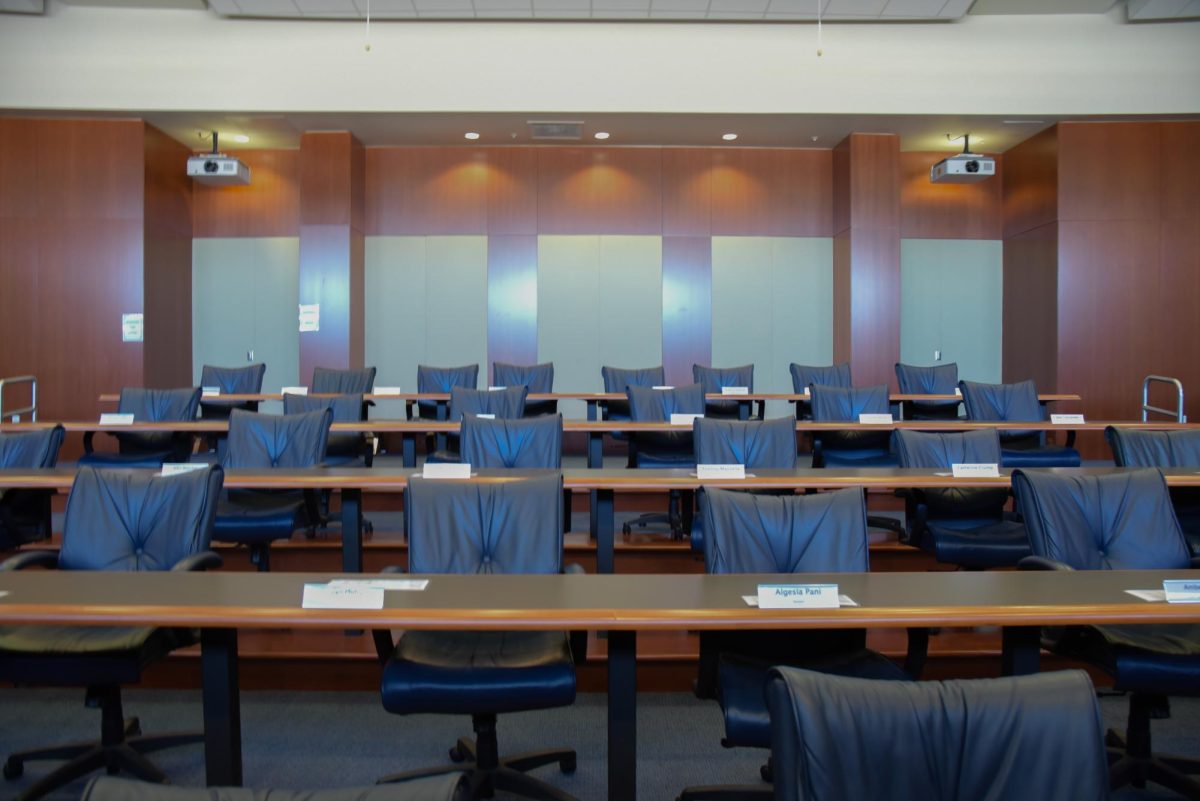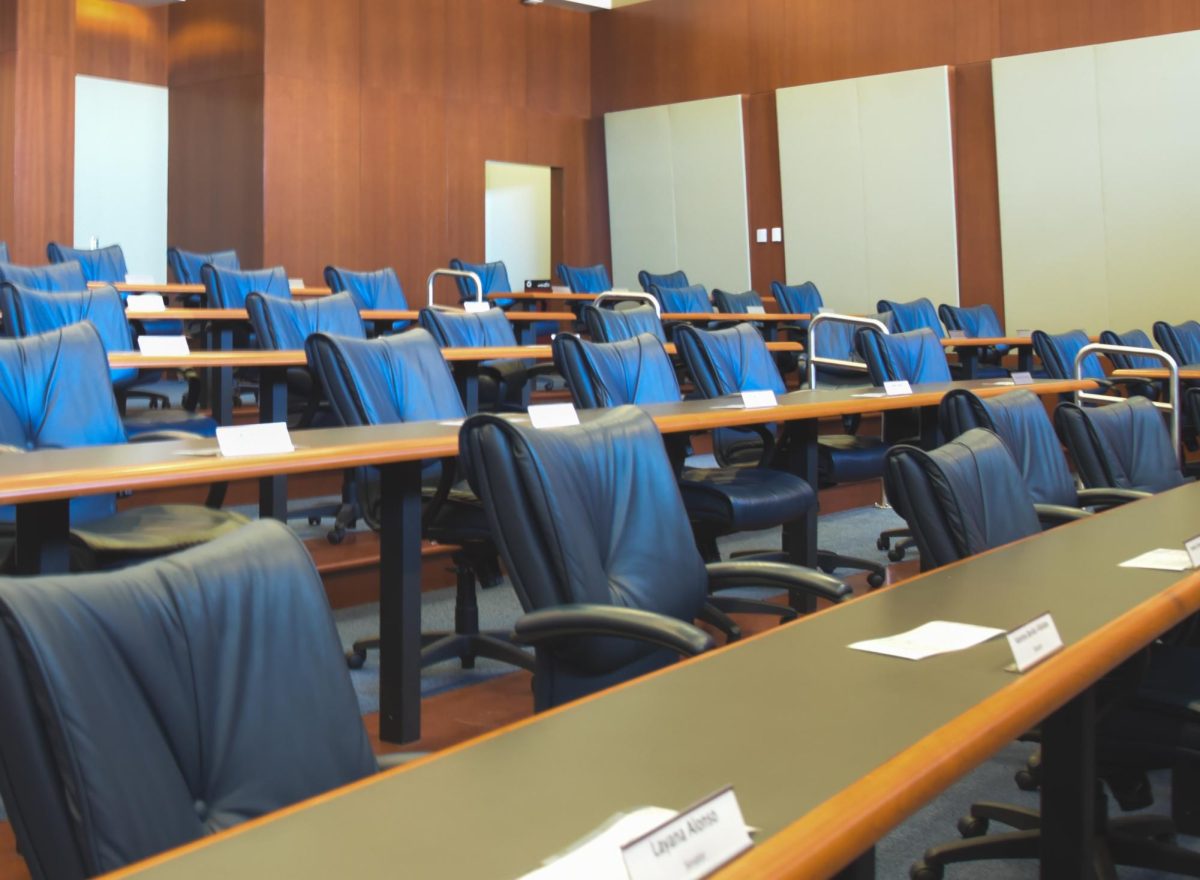UNF’s judicial branch may not get the spotlight very often, but changes are happening behind the scenes with the justices.
Potential new justices have been meeting with Chief Justice Richter, President Aloszka, and senators for interviews for appointments. Throughout this semester, there have been several vacancies on the bench, and recently Deputy Chief Justice Mary Johns resigned from her position as a justice.
On Friday, Oct. 25, the Government Oversight Committee heard the Judicial Appointment of George Boston, a sophomore at UNF. Boston is majoring in both international relations and political science and minoring in French.
Boston was seeking a position as an Associate Justice.
“Not only would I be able to do the job, I would be able to do it well,” he stated during the meeting.
He brings experience from participating on the Mock Trial team in his high school, where he served as the captain during his sophomore year.
Boston attested that he would be fit to serve as a justice by commenting on his ability to remain unbiased and impartial. He discussed situations in his workplace where he would stand up for his coworkers, saying, “I live my life everyday with integrity.”
Boston came highly recommended from President Aloszka and Chief Justice Richter. Aloszka noted in his appointment memo that when he presented Boston with four different hypothetical situations regarding the judicial branch, Boston was able to answer three of them correctly. Aloszka noted that this “is uncommon for someone who has never been in Student Government before.”
The Judicial Branch is modeled after the US Supreme Court, with 8 Associate Justices and a Chief Justice who is elected annually. Justices hear parking appeals, student conduct issues, impeachment hearings, and disputes with Student Government and its associated organizations. Justices also interpret the Student Government Constitution and Statutes.
When discussing the role of an Associate Justice, Boston was asked by members of the committee to discuss his stance on spirit versus letter of the law. The spirit of the law is based in a looser interpretation of the law, while the letter of the law is a strict, by-the-books interpretation.
Regarding this, Boston stated in his interview with President Aloszka, “Well, it depends.” In the committee meeting, he elaborated on this stance, stating that while it depends on the situation, he tends to lean more towards a spirit of the law approach. He favors a more moderate interpretation of statutes and laws because, “times are changing.”
Aloszka noted in his memo that he “was delighted to hear his answer,” as being flexible in interpreting documents is extremely important in student government.
Boston’s judicial appointment was forwarded to the Senate for Nov. 1.
__
For more information or news tips, or if you see an error in this story or have any compliments or concerns, contact editor@unfspinnaker.com.














